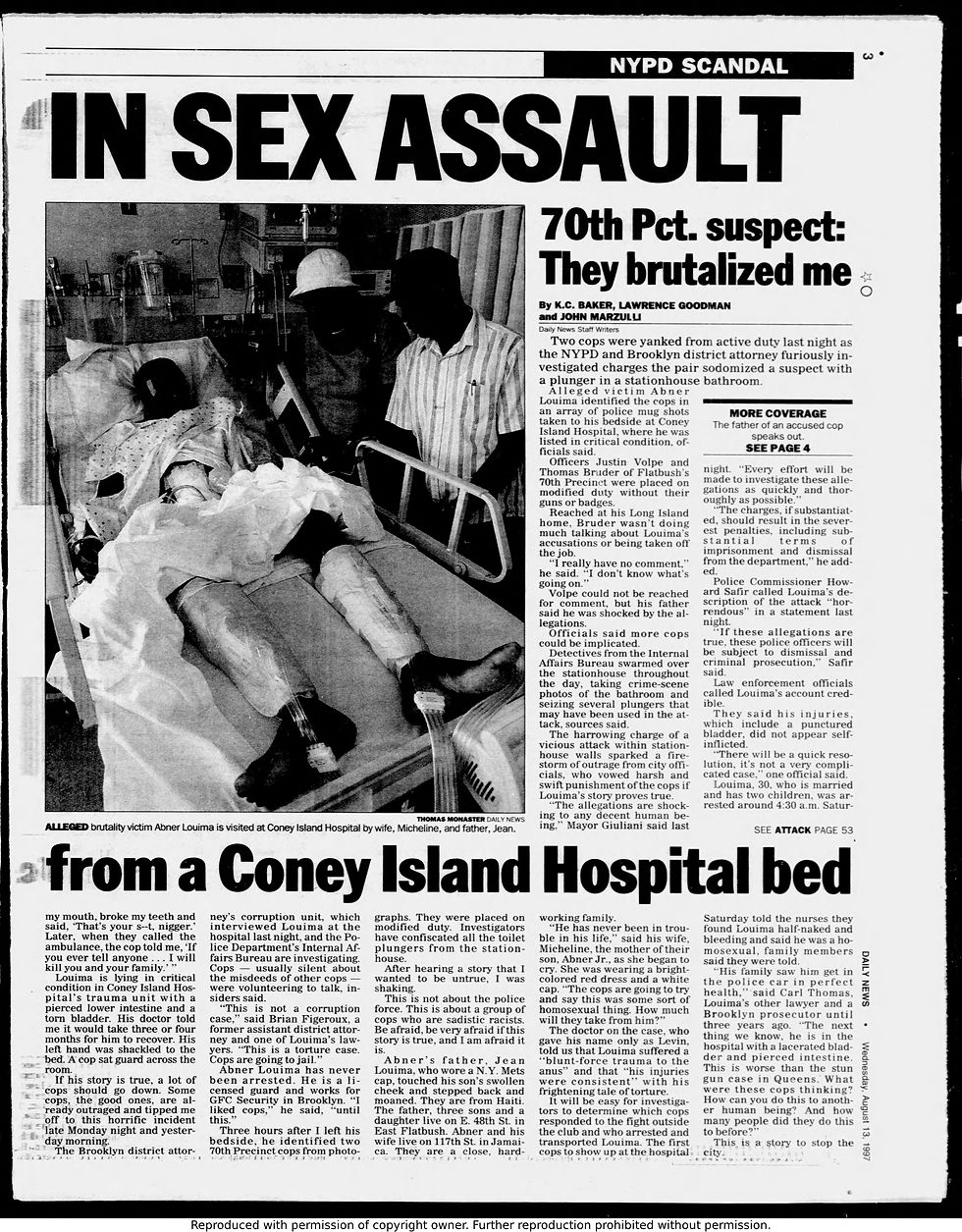Police Violence Against Haitian Immigrants: Abner Louima, August 1997
On August 9, 1997, the East Flatbush community was forever changed when Abner Louima, a 30-year-old Haitian immigrant, was brutally assaulted by New York City police officers in one of the most horrific cases of police brutality in the city's history.
That night, Louima was attending a Phantoms concert Club Rendez-Vous, a popular Haitian nightclub 1438 Flatbush Avenue in East Flatbush. A fight broke out outside the club between between two women when the police were called. Officer Volope and a few others responded to the call but aggressively engaged the crowd outside where he was punched in the face by an unknown gentlemen. Embarrassed by this and unsure of who actually hit him, Louima was targeted and arrested alongside a handful of others despite not being involved in the altercation. According to witnesses, Officer Justin Volpe mistakenly believed Louima had punched him during the melee.
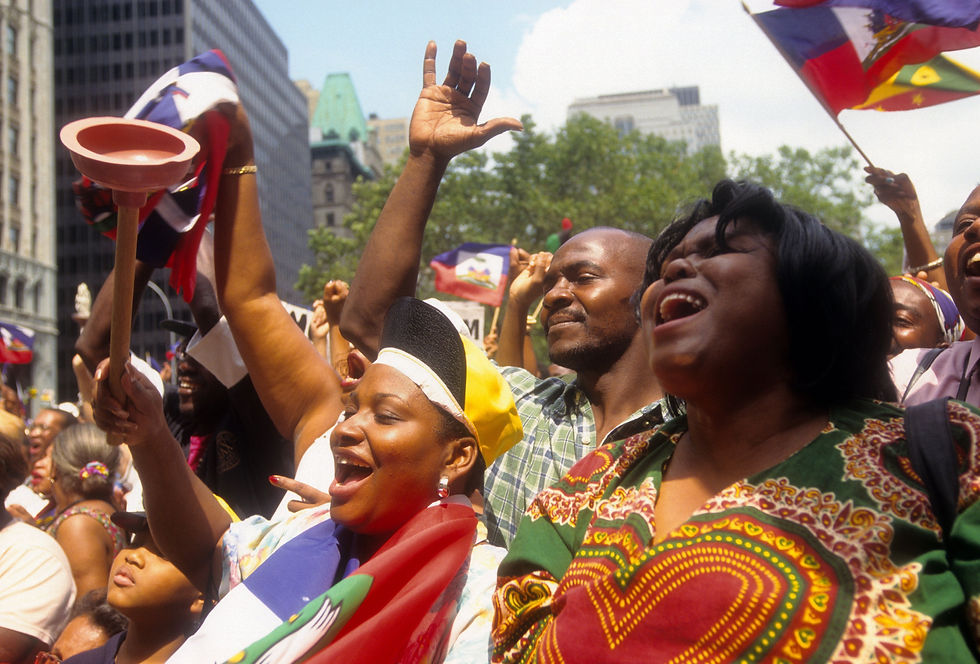
DAY OF OUTRAGE Haitian and others demonstrators waive plungers protesting the police sodomy of Abner Louima with a march from Grand Army Plaza, in Brooklyn, across the Brooklyn Bridge, to City Hall. Stacy Walsh Rosenstock / Alamy Stock Photo
A Cultural Snapshot of Brooklyn 1997
The year 1997 was a charged and unforgettable chapter in global and American pop culture—a year of both heartbreak and creative triumph that echoed the complexities of the time. Just months prior to the assault on Abner Louima, the hip-hop world had already been shaken by the tragic murder of Brooklyn’s own The Notorious B.I.G., a seismic loss that deepened the East Coast–West Coast tensions and marked the end of an era. Meanwhile, Haiti’s Wyclef Jean released his groundbreaking debut solo album The Carnival, fusing Creole, Caribbean roots, and hip-hop into a bold, cross-cultural celebration that defied borders. Globally, grief gripped millions with the sudden deaths of Princess Diana in a Paris car crash and Mother Teresa only days later—two women whose humanitarian legacies stirred mourning across nations. Even in entertainment, farewells were felt: TV's Seinfeld entered its final season, while the film world saw the rise of Titanic, a cinematic epic that would dominate box offices and captivated audiences.
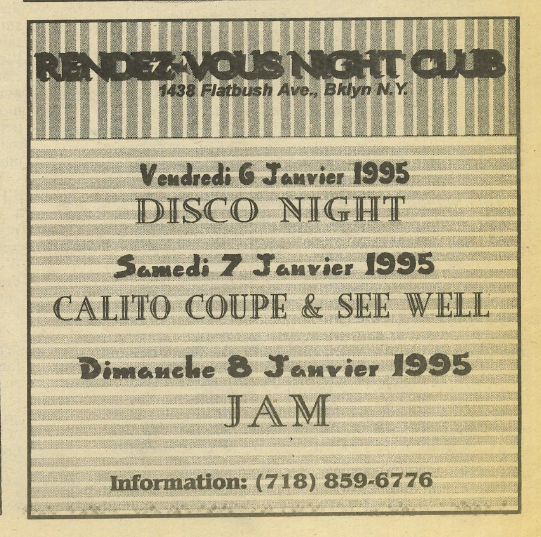
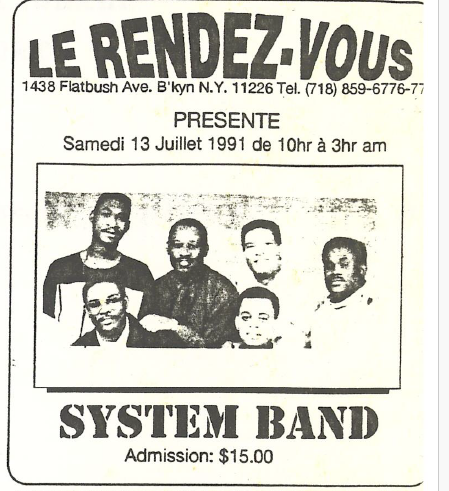
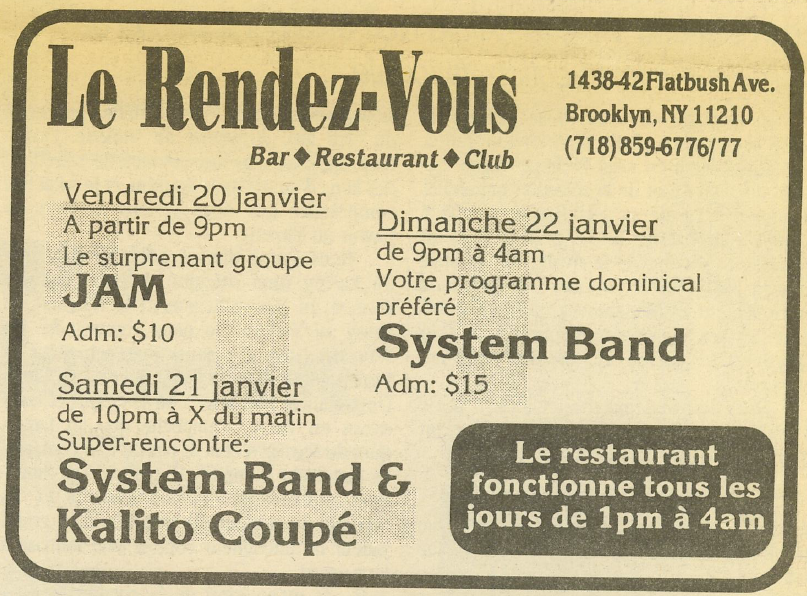
A collection of Club Rendez-Vous advertisements found in vintage copies of Haiti Observateur over the years. This nightclub hosted legendary acts like System Band, Kalito Coupe, and Phantoms
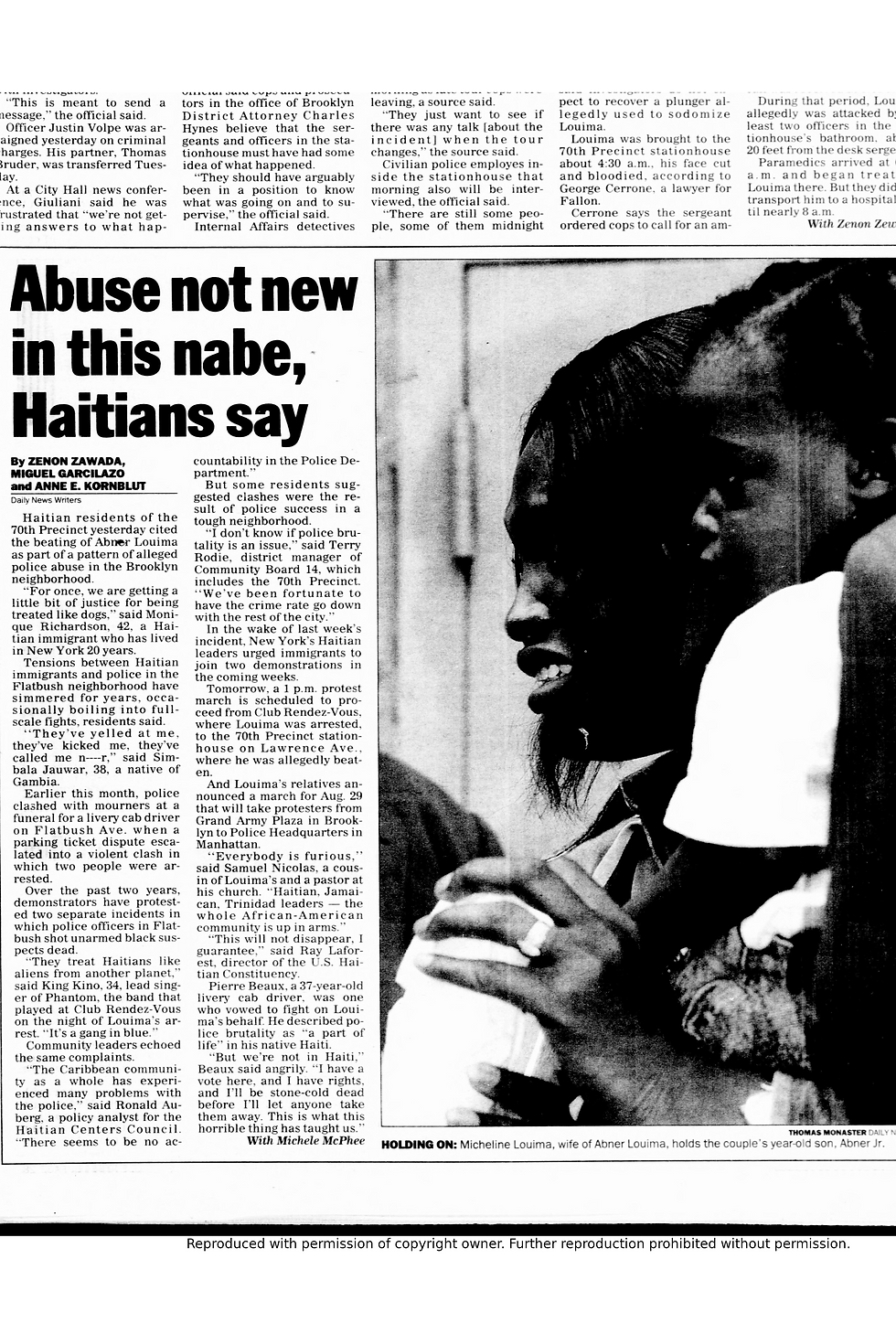
Click here to access this New York Daily News article on the Haitian community after news of the assault broke.
https://drive.google.com/file/d/1NXriqgTF2uX3Ru-3Xgy70uI1cYQuPGT8/view?usp=sharing
During the arrest, Louima was beaten in the police car on the way to the 70th Precinct station house, located at 154 Lawrence street in East Flatbush. But what happened inside the precinct bathroom would shock the conscience of the city and nation. Officer Volpe and another officer, Charles Schwarz, took Louima to the bathroom where Volpe sodomized him with a broken plunger handle, causing severe internal injuries to his colon and bladder. During this horrific assault, Volpe reportedly told Louima, "This is Giuliani time, not Dinkins time," referencing the city's mayors and implying a change in how police would treat Black residents.
Louima was then left in a cell, bleeding and in excruciating pain, where officers ignored his pleas for medical attention for several hours. He was eventually taken to Coney Island Hospital, where 7-0 officers who were guarding him reported that his injuries were a result of "rough gay sex". However, surgeons eventually discovered evidence of a far more sinister event. Thanks to the quick thinking of a Haitian nurse, Magalie Laurent who was aware that his injuries were sustained in a far more heinous attack, reported it to the NYPD's Internal Affairs Bureau that evening. Louima's injuries were so severe that he spent two months hospitalized and underwent several surgeries.
The East Flatbush Haitian community mobilized immediately with an impromptu protest in front of the 70th precinct. Local Haitian organizations like Haitian American Alliance, who in their infancy assisted with organizing demonstrations that grew into some of the largest protests against police brutality in New York City despite being formally incorporated just the year before in 1996. Thousands marched from Grand Army Plaza to the 70th Precinct, with many carrying toilet plungers as symbols of the brutality. This moment also gave birth to what would become HALEFO, the Haitian American Law Enforcement Organization. Officers like Officer Nirvose Duncan and SGT Herve Guiteau were instrumental in liaising between the Haitian community and the NYPD during this time as new Haitian community members were unfamiliar with the culture of policing in NYC which ultimately led to more clashes with the Haitian community.
Churches in East Flatbush, chiefly Evangelical Crusade Christian Church, whose senior pastor at the time Bishop Philius Nicolas, was Abner's uncle, became headquarters for organizing, healing, and strategizing. Current Senior Pastor Samuel Nicolas Jr, cousin of Abner Louima, also served as his spokesman. The case resonated deeply in East Flatbush, and drew the attention of Al Sharpton and the National Action Network, the ACLU, and the National Association for Haitian Rights as relations between the predominantly Caribbean immigrant community and police had long been strained.
The legal proceedings brought national attention to issues of police brutality and racial profiling. Volpe eventually pleaded guilty and was sentenced to 30 years in federal prison. Schwarz and two other officers who helped cover up the assault also received prison sentences, though shorter. Volope was released early last year on January 10, 2024 after serving 24 years in federal prison.



